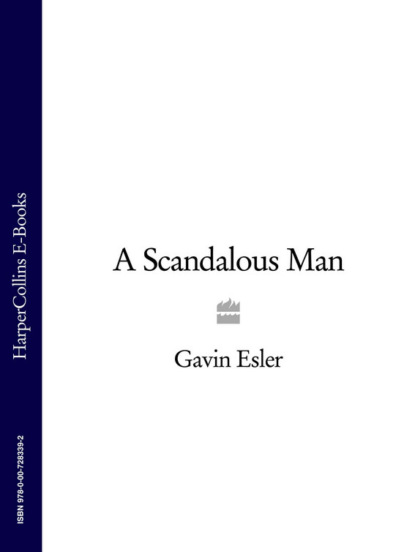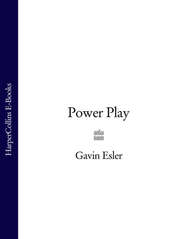По всем вопросам обращайтесь на: info@litportal.ru
(©) 2003-2024.
✖
A Scandalous Man
Автор
Год написания книги
2019
Настройки чтения
Размер шрифта
Высота строк
Поля
‘Love, Amanda. It makes him look … younger.’
‘Younger?’
‘And nicer.’
She raised her voice. ‘Nicer?’
‘Vulnerable.’
There was a long pause.
‘But Leila Rajar!’ Amanda broke in eventually. ‘How would he know Leila Rajar?’
Harry shrugged.
‘All I’m doing is looking at one moment between two people captured at one two-fiftieth of a second twenty years ago in black and white.’
‘Exactly my point, and …’
‘It’s enough. Really it is. They love each other.’
Amanda went silent.
‘Fuck,’ she said.
Middleburg, Virginia, 1982 (#u60bab662-c2d4-5ae2-9072-fb5008b43070)
ROBIN BURNETT’S STORY
Middleburg is fox-hunting country. It’s about thirty miles from Washington in the rolling Virginia hills, but it’s a different world. The day I arrived was a Friday. The Washington Post that day reported that the murder rate in the District of Columbia was going to hit 500 deaths in a year – in a city of 600,000 people. Fifteen times the murder rate in Northern Ireland, where we thought we had a problem big enough to send in troops. Some of the liberal commentators in the US were blaming the socially divisive policies of the Reagan administration. They criticized the President for designating tomato ketchup as a vegetable in school meals as a cost-saving device. How any of this was linked to the murder rate, I never understood, except that it was the usual liberal media elite sociological mumbo-jumbo, where you began with tomato ketchup and ended with blood on the streets, and it was always the government’s fault. The Reaganauts blamed individual human wickedness for the crime rate, though that did not entirely explain why more people were more wicked under Reagan either. It looked to me like simple market forces. Drug dealers were competing for customers and eliminating their rivals. As the cocaine market matured, things would settle down. Supply, demand. Gunfire to settle market share, the emergence of a monopoly supplier. Peace on the streets. Eventually.
Anyway, the next day, the Saturday, the British embassy driver picked me up at my hotel and whisked me away from the war zone that Washington had become to spend the weekend at Don Hall’s stud farm on the outskirts of Middleburg. We drove through a huge white arch inscribed with the words ‘Hall Estate’. The driveway must be about a mile long, cutting through deep-green fields with white picket fences in between.
We stood around at a lunchtime barbecue in Don’s capacious ‘yard’ – an enormous area between the house and the main barn – surrounded by horses grazing peacefully, a bucolic picture of pastureland and all-American contentment, a different planet to the street battles down the road in Washington.
When I first saw him, the Director of Central Intelligence, David Hickox, was squirting mustard from a yellow plastic bottle on to his hotdog. He was talking with his mouth full to Don Hall. I joined the half dozen others who were listening. Introductions were made.
‘So, Robin, it looks like you have the Chileans on-side in the Falklands,’ Hickox said, tearing at the bun and meat and nodding in my direction.
He was a surprisingly big man, more than six feet tall, I’d guess all of 250 pounds, but with no fat on him. Don had told me he was a former college football star who never quite made it professionally as a result of injuries.
‘We do?’ I replied.
‘You do. And I believe you know you do. The Argies certainly know it. They think you have British special forces operating out of Chile right now. SAS and SBS.’
David Hickox was right about that. The Argies were right. The government of Chile hated the Argentine junta more than we did. They were being very helpful. In secret.
‘Most of South America wants those arrogant Argie bastards to lose,’ Don Hall said.
‘And who can blame them?’ I responded, insistently. ‘They will lose. Now is a good time to be with the eventual winners.’
‘And we will help you in any way we can,’ Hickox said, looking at me directly.
That was a big admission. It made me think that for me this was already mission accomplished.
‘I am very pleased, Director. Thank you. The Prime Minister will be very grateful.’
‘I know she will,’ Hickox said, and then he paused, wiping a slick of bright yellow mustard and grease from his lips with the back of his hands. ‘So let me say it clear. We will be helpful in any way we can – consistent with our national interests and the directives of the President.’
I swigged at my beer. It was a reasonable caveat. Don Hall had already made it plain that anything the Royal Navy wanted from the US Navy would be forthcoming. There would be no problems at sea. It was all coming together.
‘And I know we both agree that maintaining a strong trans-Atlantic relationship is absolutely consistent with your national interests,’ I insisted. ‘And ours.’
Hickox tore at the remains of his hotdog.
‘So is maintaining the sanctity of the Monroe Doctrine,’ he said.
The Monroe Doctrine was a 150-year-old piece of convenient US strategic high-flown self-interest much loved by Jeanne Kirkpatrick and a few of the others. It stated that the United States would not tolerate outsiders interfering in Latin America – except, of course, if that outsider were to be the United States itself. I thought Hickox was teasing me.
‘Speaking personally,’ I replied, ‘I think we can agree that, once this war with the Argies is over, the biggest question facing both of us as allies will not involve this hemisphere at all. It will be how to stand up to the Soviets in Europe, Afghanistan and elsewhere, and how to roll them back.’
Hickox reached for more food, accepting a hamburger.
‘I like the way you’re talking,’ he said. ‘Go on.’
‘The Prime Minister has instructed me to say that it is in British interests to accept a new generation of US mid-range nuclear weapons on our soil. We are well aware what is on offer, and we are sure our abilities to persuade other European countries of the need for Cruise and Pershing will ultimately outweigh any interests your government might have with the undemocratic military junta which temporarily runs Argentina.’
Hickox smiled.
‘You Brits,’ was all he said, and then slapped me on the back with a thump that made my teeth rattle. ‘You Brits.’
As I was trying to recover, suddenly Hickox put his hamburger on the table and fell to the ground on his front. It was one of the strangest things I had ever seen and I was completely unprepared for it. David Hickox, Director of Central Intelligence, began doing a series of one-arm push-ups on the dirt, counting out loud as he did so.
‘One … two … three…’
A small crowd gathered to cheer him on. I recognized the smiling faces of the deputy defence secretary, the head of the National Security Agency, and the under-secretary of state at the State Department. Don Hall pointed out a couple of generals and admirals in the mix, and the Commandant of the Marine Corps. No women. A few of the wives had gathered near the house, well away from the show by the barn, but this was a gathering of men. We were all clapping rhythmically, as Hickox pumped on his right arm. I quickly understood it was some kind of party piece.
‘Twelve … thirteen … fourteen …’
Each push-up pumped on his right arm. He held the left arm crooked behind his back.
Don Hall walked towards me.
‘Twenty one … two … three …’
‘Did you upset him …?’ Don began.
‘I didn’t upset him,’ I protested.






